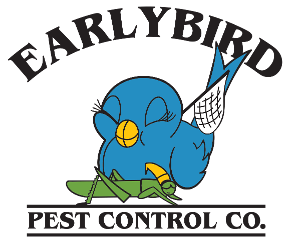If you live in Phoenix, you know that scorpions are more than just a nuisance—they’re a common and unwelcome part of desert life. These resilient pests, especially the Arizona bark scorpion, thrive in the Valley’s hot, dry climate and can pose a real threat to families and pets. Scorpion stings are painful and, in some cases, dangerous.
The good news is that scorpion problems can be managed effectively with the right approach. The bad news? Many popular “remedies” simply don’t work and waste valuable time. Here’s a guide to proven scorpion control methods—and the strategies you should avoid.
Why Scorpions Are So Hard to Eliminate
Scorpions are built for survival. They can squeeze through openings as small as a credit card’s thickness, survive on minimal food, and even slow their metabolism to last months without eating. Bark scorpions, the most common species in Phoenix, are also excellent climbers, which means they can enter homes through attics, vents, and eaves.
Traditional pest control methods, like routine perimeter sprays, often fall short because scorpions can walk across treated surfaces without absorbing enough pesticide to be affected. That’s why an integrated approach works best.
Methods That Actually Work
- Sealing Entry Points (Exclusion)
One of the most effective long-term solutions is scorpion-proofing your home. This involves sealing cracks in the foundation, caulking gaps around doors and windows, installing door sweeps, and repairing torn screens. Because scorpions can enter through tiny openings, professional exclusion services are often recommended. - Blacklight Night Inspections
Bark scorpions glow under UV light, making blacklight inspections an invaluable tool. By conducting inspections at night, you can identify problem areas, locate hiding spots, and remove scorpions on the spot. Professionals often use this method to monitor population levels and determine where to focus treatments. - Targeting Their Food Source
Scorpions feed on insects such as crickets, roaches, and ants. Reducing those populations through pest control treatments and eliminating clutter around the yard deprives scorpions of food and makes your property less appealing. - Strategic Pesticide Treatments
While standard sprays alone won’t eliminate scorpions, targeted applications using products designed to penetrate cracks and crevices can reduce populations. Professional pest control companies use specialized products and techniques to treat areas where scorpions hide, such as wall voids, block fence lines, and attic spaces. - Yard Cleanup and Habitat Reduction
Scorpions love to hide in cool, dark places during the day. Clear away any stacked firewood, yard debris, and overgrown vegetation from the areas surrounding your home. Trim back bushes and trees that touch the house, as these can serve as bridges for scorpions to enter. Gravel or rock landscaping close to the foundation can also reduce hiding spots compared to mulch.
What to Skip
- “Scorpion Kill” Sprays at the Hardware Store
Most over-the-counter sprays kill only on contact and have little residual effect. Because scorpions are so hardy, simply spraying the ones you see won’t address the larger problem. - Mothballs or Essential Oils
Placing mothballs or using essential oil sprays around your home may smell strong, but they have little to no effect on scorpions. These home remedies are more myth than solution. - Glue Traps as the Only Control Method
Sticky traps can catch scorpions and help you gauge how many are present, but they’re not a complete control strategy. Relying solely on traps will never address the root cause of an infestation. - Bug Bombs
Aerosol foggers can actually make the problem worse by driving scorpions deeper into wall voids and inaccessible areas. They do not penetrate the places where scorpions hide and breed.
When to Call a Professional
If scorpions are showing up in your home on a regular basis, it’s a clear sign you need to call a pest control professional. Professionals have the tools and expertise to combine exclusion, habitat reduction, and targeted treatments. Many Phoenix pest control companies offer specialized scorpion services that include sealing, blacklight inspections, and follow-up visits to ensure long-term success.
Staying Vigilant
Even after professional treatment, ongoing vigilance is key. Keep your yard clean, eliminate excess moisture, and inspect for new entry points at least once a year. Regular pest control treatments for insects can also help reduce scorpion food sources.
By combining exclusion techniques, habitat management, and targeted treatments, you can dramatically reduce scorpion activity around your home. Skip the myths and quick fixes—they’ll only leave you frustrated. Instead, focus on proven methods to keep your Phoenix home scorpion-free and your family safe.


Recent Comments